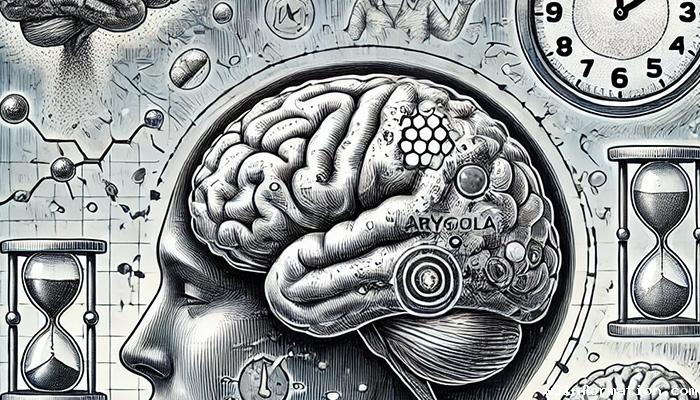Exploring the Effects of Chronic Stress on the Brain
Stress functions as a natural reaction to difficult circumstances by assisting individuals in responding to threatening situations and demands. Long-term stress exposure leads to serious impacts on brain operations and personal health. Long-term exposure to stress hormones impacts both cognitive function and emotional control while also harming physical health. To manage chronic stress effectively and enhance mental resilience we must understand its impact on brain function.
How Chronic Stress Affects Brain Structure
Long-term stress exposure results in substantial changes to brain structure. The hypothalamic-pituitary-adrenal (HPA) axis manages stress responses and becomes overactive which results in excessive cortisol production. This hormone serves a critical function for immediate survival but produces brain structural damage when its levels remain high.
The hippocampus emerges as one of the primary brain regions affected by stress because it is crucial for memory development and learning processes. Prolonged stress exposure causes the hippocampus to shrink which disrupts memory retention and recall abilities. The prefrontal cortex which manages decision-making abilities and impulse control becomes weaker when exposed to long-term stress resulting in impaired concentration and rational thought processes. The amygdala becomes overactive during stress while functioning as the brain’s emotional processing center which results in increased fear and anxiety reactions.

Cognitive Decline and Memory Impairment
Chronic stress harms brain function which causes memory impairment along with learning difficulties. Research demonstrates that extended interaction with stress hormones impairs concentration abilities and leads to inefficient information processing along with memory retrieval problems. Work performance suffers while academic achievement drops alongside increased mental exhaustion.
Chronic stress damages neuroplasticity which prevents the brain from developing new neural pathways together with causing memory impairment. Chronic stress restricts individuals' problem-solving capabilities while complicating the development of coping mechanisms during difficult situations. The brain’s reduced ability to adapt heightens the likelihood of developing neurodegenerative disorders like Alzheimer's disease over time.
Chronic stress affects behavioral patterns which result in unhealthy coping behaviors like overeating and substance abuse along with smoking. These actions result in additional harm to both mental and physical health which creates an ongoing cycle of stress and reduced well-being.
The following measures can help alleviate the effects of long-term stress on the body and mind.
To effectively manage chronic stress people need to implement strategies that support relaxation and develop resilience. Mindfulness meditation along with deep breathing exercises and yoga practice can support the regulation of stress hormones and enhance brain performance. Enduring exercise decreases cortisol levels while enhancing mood through the release of endorphins which naturally relieve stress.
A balanced lifestyle with proper nutrition, sufficient sleep, and supportive social relationships helps reduce stress effects significantly. Participating in personal hobbies and connecting with the outdoors while establishing achievable targets helps establish life balance and meaning which leads to decreased stress responses in the brain.
Conclusion
The brain undergoes significant changes due to chronic stress which influences memory capabilities alongside cognitive processes and both mental health and physical wellness. Recognizing stress-induced changes to brain structures and neurotransmitter functions demonstrates why managing stress is essential. People who adopt healthy coping techniques and focus on mental health preservation can maintain their brain performance and experience more enriched lives.
 Top 10 Comfort Foods to Try This Winter
Top 10 Comfort Foods to Try This Winter
 Top 10 Christmas Destinations Around the World
Top 10 Christmas Destinations Around the World
 Navigating Adolescence: Tips for Parents and Teens
Navigating Adolescence: Tips for Parents and Teens
 How to Start a DIY Craft Project on a Budget
How to Start a DIY Craft Project on a Budget
 How to Build Strong Family Bonds in the Digital Age
How to Build Strong Family Bonds in the Digital Age
 The Importance of Early Childhood Education
The Importance of Early Childhood Education